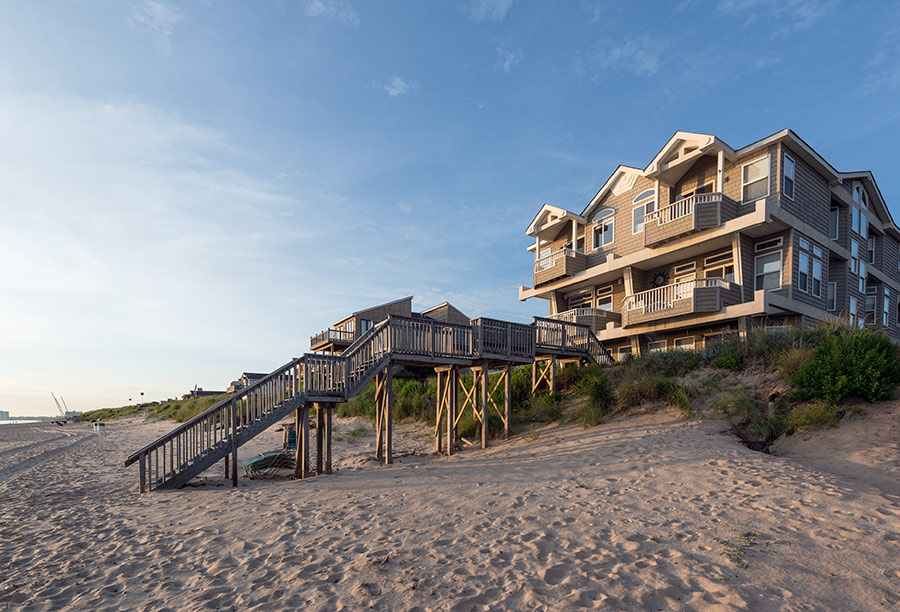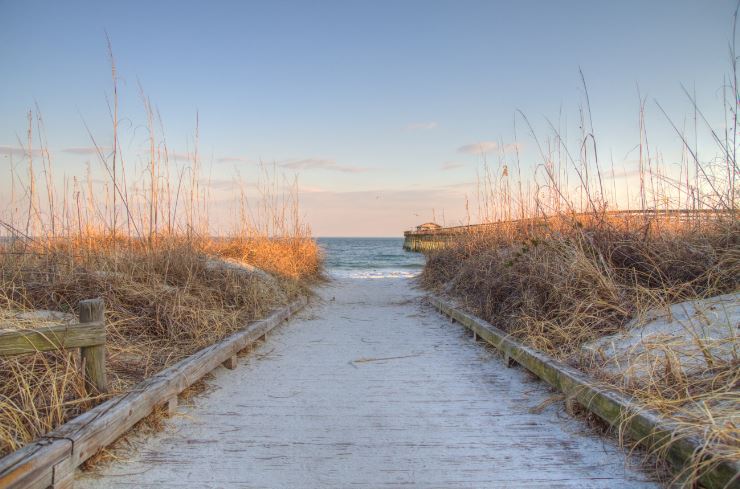
Summer is the season people travel to second homes by the lake or seaside. If you've purchased such a getaway, make sure it's properly insured.
The cost of vacation home insurance should be factored into the second home-buying equation.
These attractive properties are also attracting risks.
Such risks include natural disasters and dangers posed by vandals and thieves. Those types of risk drive up the cost of insurance.
Here are six questions to ask when insuring your vacation home:
Question 1: Does my insurer offer a secondary home endorsement?
Most people automatically assume they need to buy a stand-alone home insurance policy to cover their vacation home.
But some insurers will let you add an endorsement to your primary home's policy that covers the vacation home.
This is often the most cost-effective way to go.
Although you likely will save money with an endorsement, the coverage level might not be as extensive as with a separate insurance policy. That is particularly true if the home is at greater risk of falling prey to natural disasters such as hurricanes, brush fires or flooding.
Because the cost and coverage levels of endorsements vary from company to company, it is important to talk to your agent and discuss your options.
Question 2: Do I need to increase liability coverage?
People with vacation homes frequently invite guests for weekends of fun.
Unfortunately, such activities raise the risk someone will be injured on the property, leaving you liable for the loss.
In addition, vacation homes often are vacant for longer periods of time than primary homes. That also increases your liability risk.
If someone breaks in or doesn't have permission to be on your property, that limits your personal liability. But you could always be sued anyway.
Purchasing an umbrella liability policy can boost the liability coverage on your vacation home. These policies typically cost just a few hundred dollars a year, and they can boost your liability protection by $1 million or more.
Question 3: Should I buy coverage for sewer and drain backups?
Many home insurance policies don't automatically cover damage caused by drain and sewer backups.
This type of damage can be a major problem in any type of home, but the risks may be greater in a vacation home.
The amount of damage that can occur when it goes unchecked will likely be much more extensive.
It's easy to insure against this risk. An insurance rider with this type of protection typically costs around $50 a year.
This coverage is just the first step. Have someone look after the vacation home while you are away, and to perform maintenance such as removing snow and checking the thermostat.
Question 4: Are my 'out buildings' protected?
Summer homes often have additional features -- including boat houses and sheds -- that aren't attached to the home. In most cases, these structures will be covered under the policy that protects the main building.
However, in most cases there is a limit to the coverage amount for these buildings.
Coverage would be limited to 10 percent of the vacation home policy. So, if your home was insured for $100,000, you would have $10,000 in coverage for such buildings.
Of course, the exact percentage can vary from insurer to insurer. If you need more coverage, talk to your agent about purchasing a rider that will provide higher levels of protection for the individual buildings.
Question 5: Is my boat covered?
Home insurance may offer some coverage for small boats, but only for a limited amount.
Coverage varies, with some insurers covering boats for about $1,000, while others offer coverage of around 10 percent of your home's property value. Liability coverage usually isn't included, but can be added through an endorsement to your homeowners policy.
However, don't count on a homeowners policy to cover losses to your yacht.
With bigger and more expensive boats, it's recommended that people consider a separate boat policy to ensure adequate coverage for both damage and liability.
You also will likely need a separate policy to cover Jet Skis and wave runners.
Policies that specifically cover boats and other watercraft come in two types:
- Actual cash value. This pays your replacement costs after subtracting any depreciation.
- Agreed amount value. With this policy, you and the insurer agree upon an amount that represents the boat's true worth. If the boat is totaled, you will be paid in this amount. If a partial loss occurs, you will receive new parts to replace the damaged parts.
Actual cash value coverage tends to be cheaper that agreed amount value coverage because the former only pays you the depreciated rate of your loss. So, while you may pay less in premiums, you could end up paying more out of pocket to cover a loss.
Question 6: Do the insurance requirements differ at the location of the vacation home?
Many people own vacation homes located far from their primary residence, often in another state. Because insurance is regulated at the state level, it's important to know which rules apply in your vacation home's community.
If you have a primary home in Massachusetts and buy a second home in New Hampshire, you should know that the vacation home insurance policy has a separate water damagae deductible.
In some cases, the insurer of your primary home may refuse to insure the vacation home if it is located in an area at a higher risk for loss due to flooding or other circumstances.
Talk to Lallis & Higgins Insurance before you buy a prospective vacation home to find out if coverage will be available.











